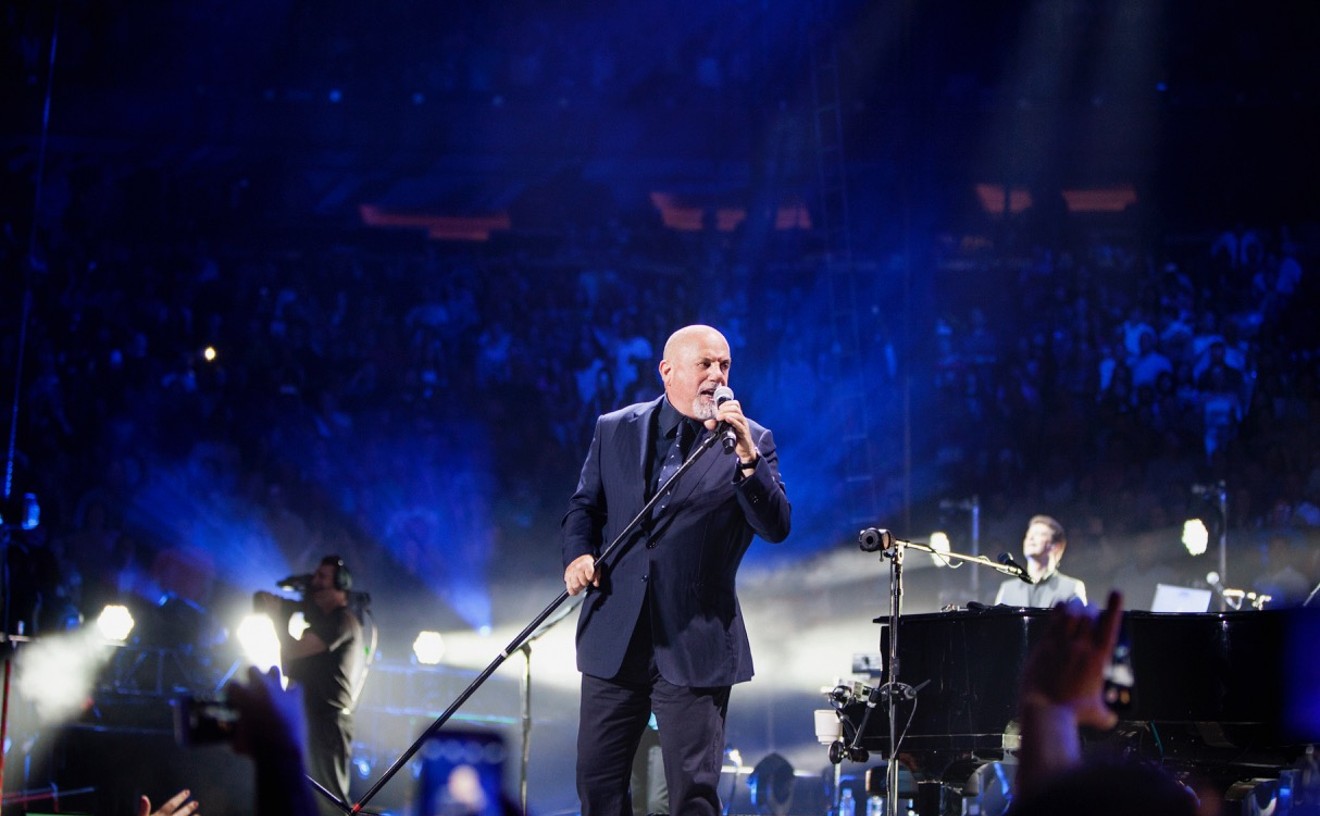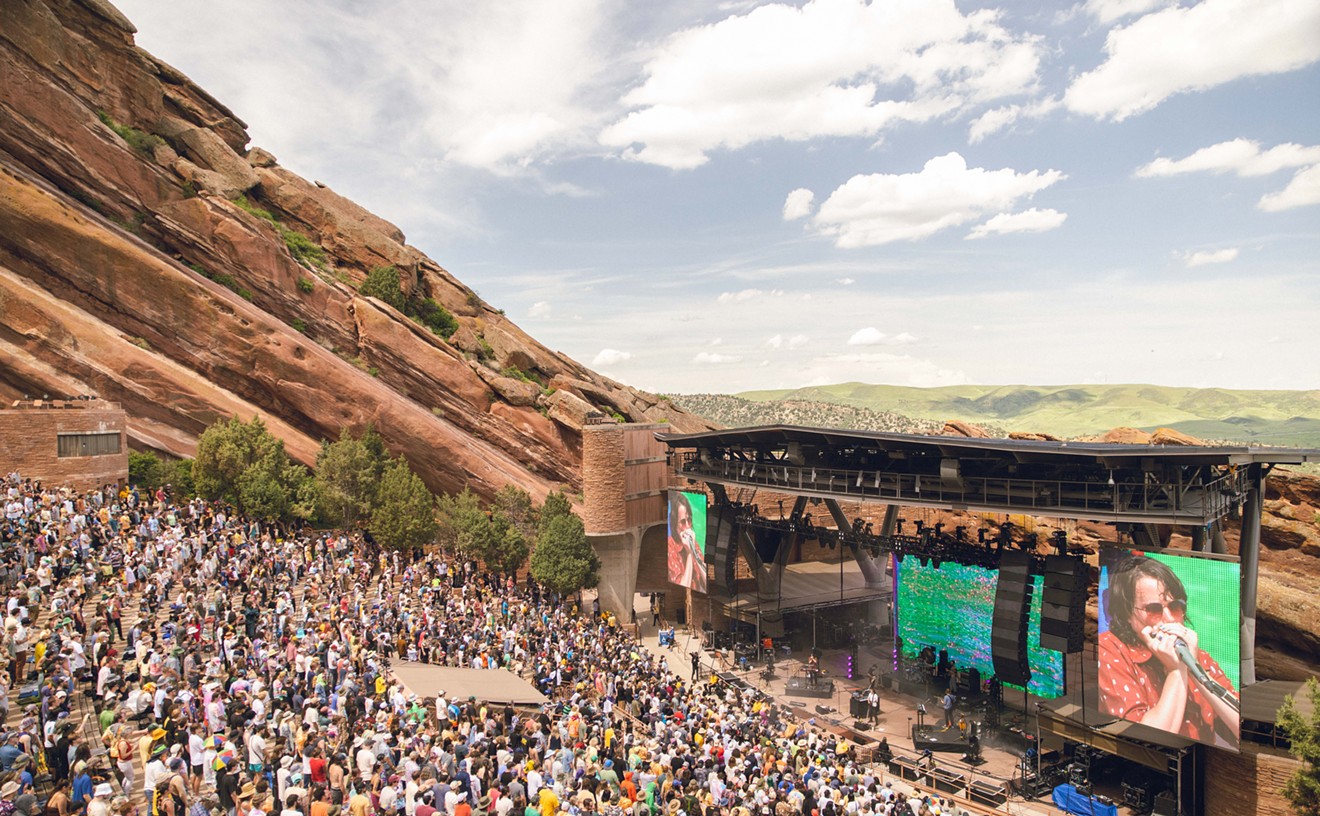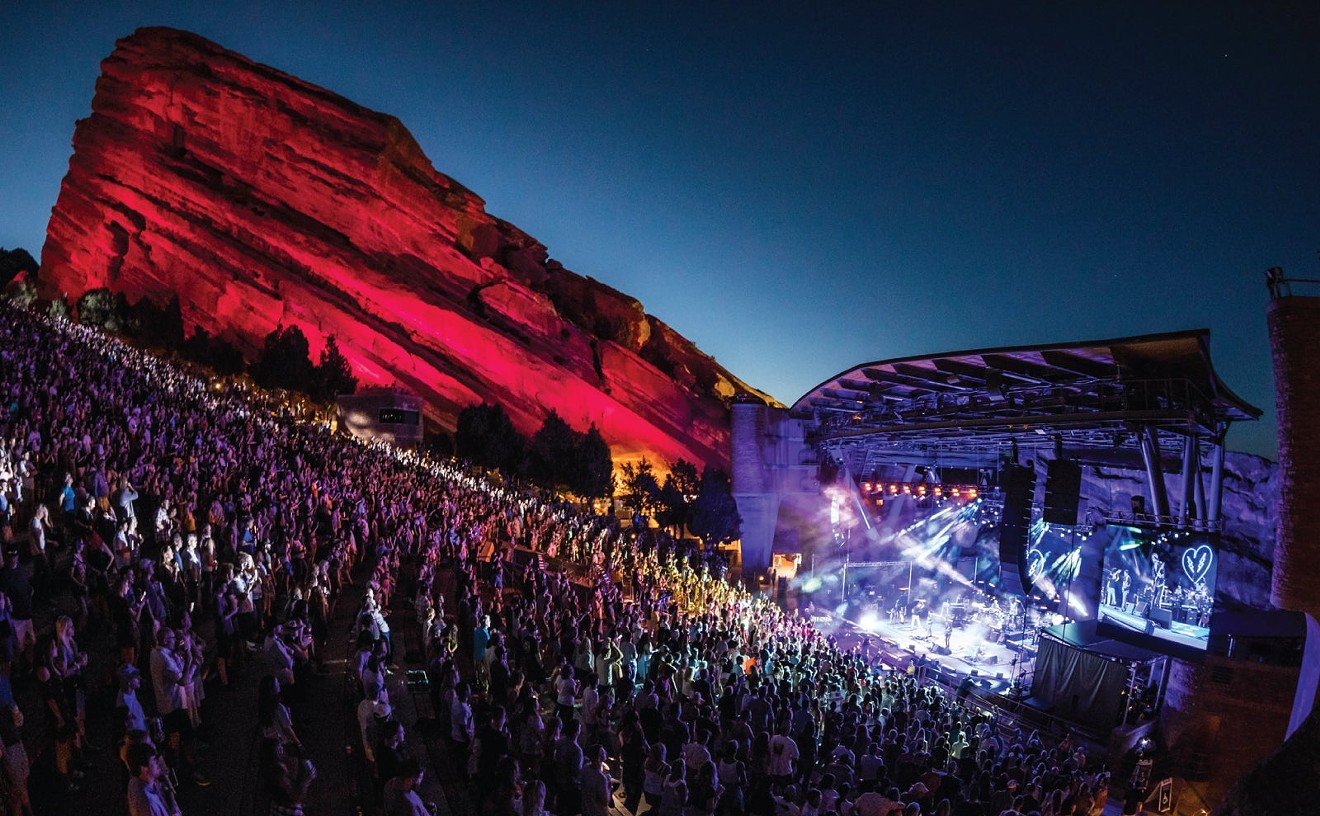Before moving to Colorado in 1964, jazz guitarist Dale Bruning spent about four and a half years studying with the legendary Dennis Sandole, who was John Coltrane's teacher and mentor early in his career. After a few years of studying with Sandole, Bruning landed a gig as leader of the house band for The Del Shields Show, a television program based in Philadelphia, and started having people asking him for lessons.
"Do you think I could be a teacher?" Bruning remembers asking Sandole. "He was so helpful," Bruning recalls. "He said, 'Well, what's your motive? Are you just trying to make some extra money, or are you really motivated to help and want to share with people?' I said, 'Oh, definitely that. That's what I want to do.'"
While his bio states that he's taught around 1,800 students over the years, he admits he's long since lost track. Bruning, who's been based in Longmont for many years, spent a year teaching at the University of Northern Colorado, about four years at the University of Colorado at Denver, and taught at Naropa for a while, as well. " So I suppose if you're adding those people," he allows, "it might come to that high of a number. I've taught a lot of students over the years."
Over the course of his 45-plus years of private teaching, many of Bruning's students have gone on to be professional musicians — notably, guitarist Bill Frisell, who started studying with Bruning in the late '60s, while Frisell was studying clarinet at East High School. Bruning says his musical tastes were in the formative stages, and he seems to recall that Wes Montgomery was the only jazz guitarist Frisell had heard by then.
"It was obvious that the guitar was starting to take precedence over the saxophone," Bruning says. "It was my responsibility to introduce him to that music. It was easy to talk to Bill when it came to things like phrasing, because he had learned a lot about that with the clarinet and the saxophone." So along with passing on harmonic, textural and conceptual ideas to Frisell, Bruning drew his student's attention to jazz legends and history.
"It was at a very crucial time in my life," Frisell notes. "I don't know if I'd really be playing now if it wasn't for him. He just sort of opened the door on this gigantic world of music that I really knew nothing about. Even in the first couple lessons, he would ask me, "Have you ever heard of Charlie Parker or Sonny Rollins?" I didn't know who any of those people were when I met him. So he was really the door for all that. The things that he talked about really laid out the framework for what I do now."
"The thing that impresses me so much about Bill," Bruning says, "is it was obvious when he was a student of mine that he was a very talented person. What's wonderful is that he's kind of like a nephew or something. He's the same person now — at least toward me — as he was years ago. He's just a humble person and very warm, and obviously very talented.
"As his musical persona grew," Bruning continues, "he began both musically and verbally to make ever more significant statements. By now, in time, people talk about the Bill Frisell approach to music and to the guitar, and what he represents to people out there."
While Bruning says he's had a handful of students come to him because they found out that he taught Frisell, he says he always reminds people that Frisell obviously had other instructors, including Jim Hall, to whom Bruning introduced Frisell in the '70s, when Hall was in Denver for a duo concert with Bruning.
"So I certainly wasn't the only one that he studied with," Bruning humbly points out. "And besides that, he's a very talented person. Give credit to Bill Frisell for being Bill Frisell. He's brought a lot of stuff to the music that, if you're trying to assign credit, give it to Bill, because he's a very talented person. But I always give Bill a hard time. I tell him, 'Bill, if you're having a good night playing, then you can kind of give credit to yourself for what's going on. But if you're having a bad night, then you can blame me.' He always laughs about that."
Just over a decade ago, Bruning flew out to Seattle, where Frisell lives, and the two spent a week doing workshops at Cornish College of the Arts, then wrapped up the stay with two nights of concerts, which were recorded and released as Reunion, a two-disc set of mainly standards that shows Frisell possibly swinging more than on any of his recordings.
"What I so appreciated about doing that," Bruning offers, "was that it was his desire to just do some standards and do some straight-ahead kinds of things, which is kind of what that album is all about."
When Frisell and Bruning team up again this weekend at Dazzle for a two-night stand, Bruning says, they'll delve into standards, bop tunes, originals and possibly a few numbers from the folk and classical realms. Also on hand will be bassist Michael Moore, who performed with Dave Brubeck for nearly a decade, as well as other jazz luminaries such as Bill Evans, Art Farmer, Stan Getz and Zoot Sims.
"The wonderful thing about Bill Frisell and Michael Moore is that they listen so well," notes Bruning. "They just listen, and they always seem to provide what the music needs. They never seem to be playing in such a way that they're trying — if you can forgive me for using this expression — they never seem to play where they're trying to strut their stuff. They always seem to be playing what seems to be best, musically speaking, for the moment, and that only comes from listening."
While Bruning has taught for decades, he was a performer long before he even thought about teaching. He grew up in Carbondale, Pennsylvania, with a musical family: His mother played the piano and his father was a professional drummer. Bruning himself started piano lessons when he was about seven years old, and says that if being a professional musician means being paid for your services, then he's been one since he was a sophomore in high school.
After graduating, he went on the road with a quartet until the Korean War, when he went into the Navy as a musician for four years. After wrapping up his stint with the Navy, Bruning did a bit more traveling on the road before moving to Philadelphia to attend Temple University. Early on in his teaching career, he felt that the thing that could make him the most effective as a teacher was to continue to play, because that's what kept his fire going.
"If a student would say to me, 'Dale, if you're on the bandstand playing and someone does this or that, what should you do as a guitar player?'" he remembers. "Well, if you've never been on the bandstand, how are you going to answer that question? So that's why I felt my continuing to perform was maybe one of the most important elements of how my approach to teaching would be, along with that model that Sandole had given me.
"I have a handful of students that I'm trying to do my best with," he concludes. "Deep down in my heart, I always think of myself as a performer. And it doesn't mean by saying that that the performing part comes first; it just means that that's what kind of keeps my fire going, because if I lose enthusiasm about the music, then I'm not going to be very effective with teaching at all."











